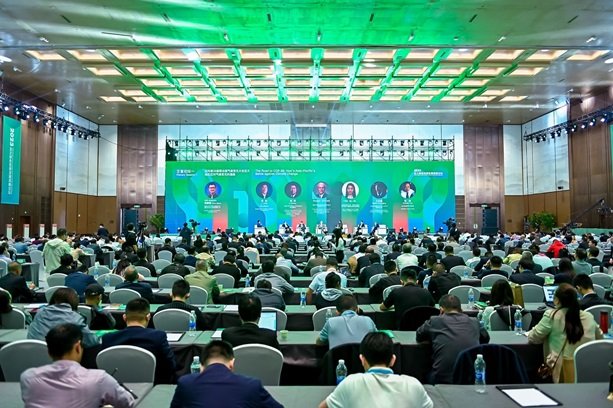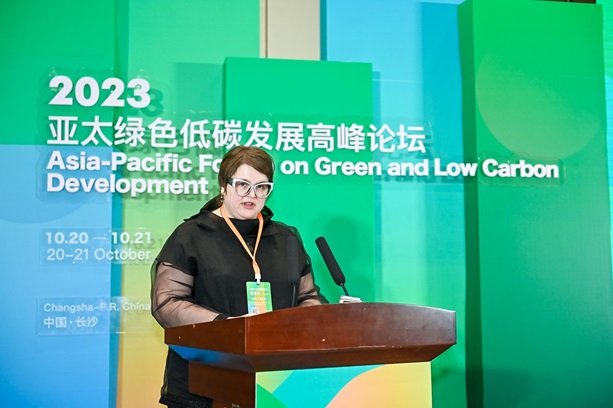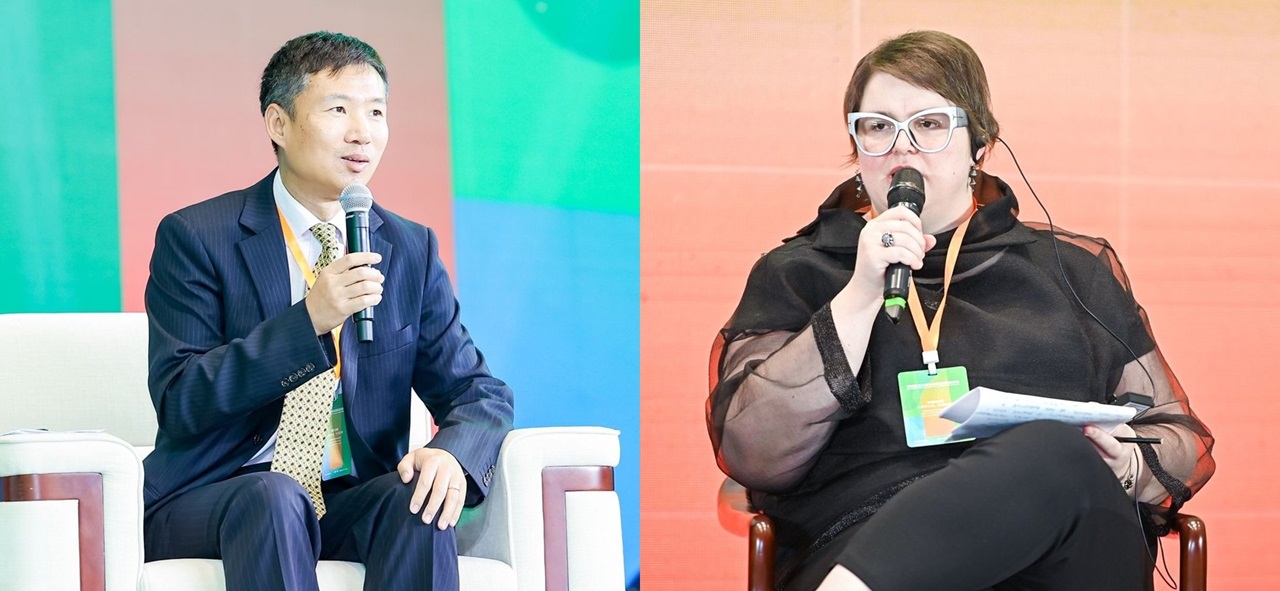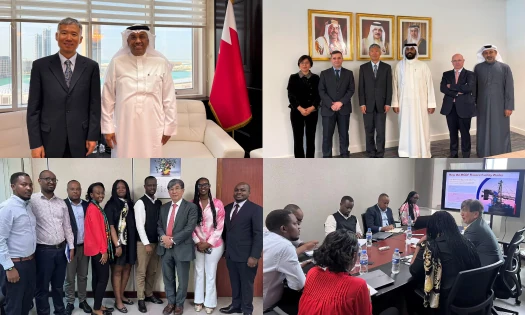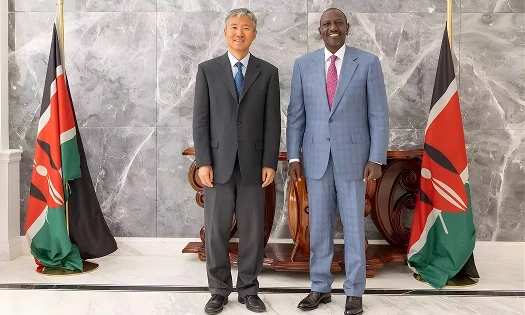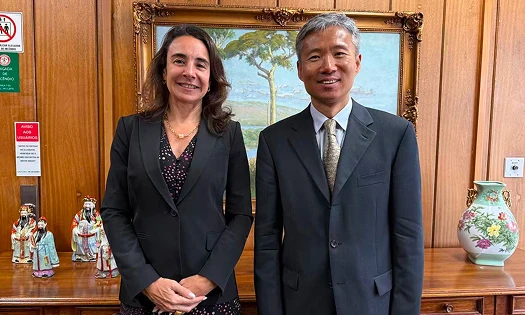Multilateral Cooperation Center for Development Finance (MCDF) experts described the importance of sustainable cross-border connectivity infrastructure for fighting climate change and MCDF’s partnership approach for promoting it at the Asia-Pacific Forum on Green and Low Carbon Development, hosted by the Asian Development Bank in Changsha, China on 20-21 October.
During the forum’s opening panel on the road to the United Nations’ Climate Change Conference (COP28) in Dubai, MCDF CEO Zhongjing Wang noted the progress of countries in Asia and the Pacific to adopt ambitious carbon emissions reduction goals and advance them via incentives that have made renewable energy cheaper and more attractive to investors. But he explained that sustainable connectivity infrastructure development is required to achieve greater climate breakthroughs.
Watch CEO Wang’s Opening Panel Remarks (Starts 02:43:30)
“Renewable energy generation itself is not sufficient for climate action,” said CEO Wang. “Connecting renewable energy generation and consumers must be part of the solution. This will bring the economic benefit, the security benefit, and the sustainability benefit.” He also described the need for governments, International Financial Institutions (IFIs), and partners to break barriers across infrastructure sectors and build infrastructure resilience to mitigate costly disasters exacerbated by climate change.
CEO Wang added that climate finance must urgently be scaled up to address climate change challenges. He pointed to opportunities to harness financing innovation as well as public-private partnerships that could deliver private sector capital and knowhow in areas such as power transmission infrastructure.
He also called for deeper international cooperation, highlighting MCDF’s USD 22 million in grants over the past two years that have brought together three IFIs and more than 10 countries to mobilize USD 6.6 billion in targeted cross-border connectivity infrastructure investment, with an emphasis on climate change and climate resilience.
During a later parallel session, MCDF Senior Environment and Social Development Specialist Ines Fejzic discussed how MCDF capacity building, project preparation, and information-sharing is addressing gaps in climate financing, policy, and bankable projects. It is crucial for boosting climate-aligned connectivity infrastructure in developing countries in Asia and the Pacific and beyond, she underscored.
Watch Ines Fejzic’s Parallel Session Remarks (Starts 02:33:10)
“The insufficient supply of investment-ready infrastructure projects which are also climate-smart in emerging markets is a barrier to private financing and this is where MCDF has a mandate to support project preparation for private financiers in [these] markets,” said Fejzic.
She detailed MCDF activities such as its support for road climate proofing a major connectivity corridor in Indonesia, development of environment and social (E&S) management and a green financing framework at Export-Import Bank of China, and capacity building and information-sharing to promote IFI standards for E&S among countries and emerging market financiers in Asia and the Pacific.
